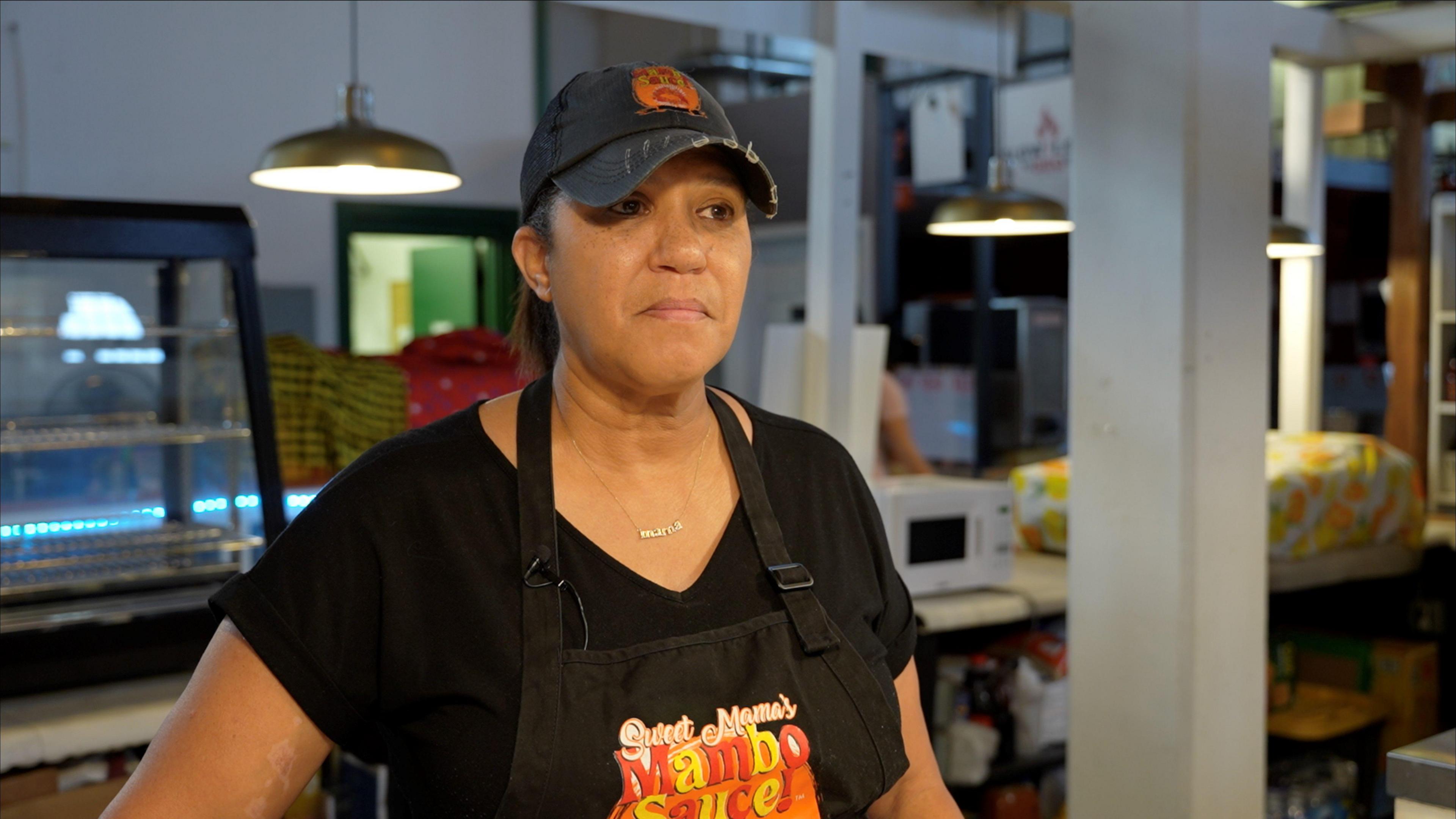US goes big with first interest rate cut in four years

- Published
The US central bank has lowered interest rates for the first time in more than four years with a bigger than usual cut.
The Federal Reserve reduced the target for its key lending rate by 0.5 percentage points, to the range of 4.75%-5%.
Jerome Powell, the head of the bank, said the move was "strong" but that it was needed as price rises ease and job market concerns grow.
It will be a relief to US borrowers, who have been dealing with the highest interest rates in more than two decades.
Wednesday's cut was larger than many analysts had predicted just a week ago, and the bank's forecast signalled that rates could fall another half percentage point by the end of the year.
Federal Reserve chair Jerome Powell said the aggressive action on Wednesday was intended to make sure that high borrowing costs, put in place to fight inflation, would not end up hurting the US economy.
"The labour market is in a strong place - we want to keep it there," Mr Powell said. "That's what we're doing."
What will a US interest rate cut mean for me?
- Published18 September 2024
How both campaigns will seize on interest rate cut in US election
- Published18 September 2024
The move by the Fed follows cuts by other central banks, including those in Europe, the UK, and Canada and a reduction was widely expected.
But ahead of the meeting there was unusual uncertainty about how large a cut officials would approve.
"Despite there being no significant economic woes on the radar, policy makers have decided to get ahead of the curve," said Isaac Stell, investment manager at Wealth Club, a UK investment service.
"Many may be left wondering what the Fed sees on the horizon to prompt such a bold move."
The Fed raised interest rates sharply starting in 2022, aiming to cool the economy and stabilise prices, which were then surging at the fastest pace since the 1980s.
The moves, which rippled out to the public in form of more expensive mortgages, car loans and other debt, were intended to ease price pressures by reducing spending.
But as inflation, the rate at which prices rise, has subsided, officials have become more concerned about risks to the wider economy from high rates.
The unemployment rate in the US has climbed to 4.2% from 3.7% at the start of the year as hiring slowed.
Projections released after the meeting showed officials now see inflation falling faster and unemployment rising higher than they did in June, with the jobless rate expected to hit 4.4% by the end of the 2024.
Mr Powell said the job market had been too hot last year, and he welcomed some cooling, but he denied that the Fed was worried about the start of a serious slowdown.
"I do not see anything in the economy right now that suggests that the likelihood... of a downturn is elevated," he said.
Over the three months to June, the US economy grew at an annual rate of 3%, the most recent Commerce Department figures show. Retail spending has also remained resilient.
Inflation, meanwhile, dropped to 2.5% in August, moving closer to the Fed's 2% target for the fifth month in a row.
One Fed governor - Michelle Bowman - voted against the move in the first such dissent since 2005.
Historically the bank has announced interest rate cuts of 0.5 percentage points at moments of crisis such as the onset of the coronavirus pandemic or the 2008 financial crash.
But economist Randall Kroszner, a professor at the University of Chicago's Booth School of Business and a former governor of the Fed, said Wednesday's announcement was significant not because of the size of the cut but because it will kick off a new period of lower borrowing costs.
"One quarter of a percentage point one way or another - that's not going to break the US economy," he said.
"It's really where they are headed both for the rest of the year, as well as in the intermediate and longer run."
The Fed had held its key rate - which it charges banks to borrow - steady since July 2023.
Forecasts released by the Fed showed officials expect its key lending rate to drop to about 4.4% by the end of the year and 3.4% by the end of 2025. That is significantly lower than many were predicting as recently as June.
'It's a big deal'

Restaurant owner Jennifer Heasley says her monthly payments have risen "tremendously"
Jennifer Heasley, the owner of Sweet Mama's Mambo Sauce in Pennsylvania, said she had been waiting anxiously for the Fed to act, after using credit cards to help pay for the expansion of business making barbecue-like sauce two years ago.
"My interest rates have gone up, so my monthly payments have increased tremendously," she said, noting that one card is now charging her 21%.
"If you're buying a piece of equipment for $1,500 and you're putting that on a credit card - if you're not paying that off, you're accruing quite a bit of interest," she said.
"For me, it is a big deal for them to start to come down."
The Dow Jones Industrial Average, the S&P 500 and the Nasdaq jumped after the initial announcement but ended the day modestly lower.
Additional reporting by Michelle Fleury